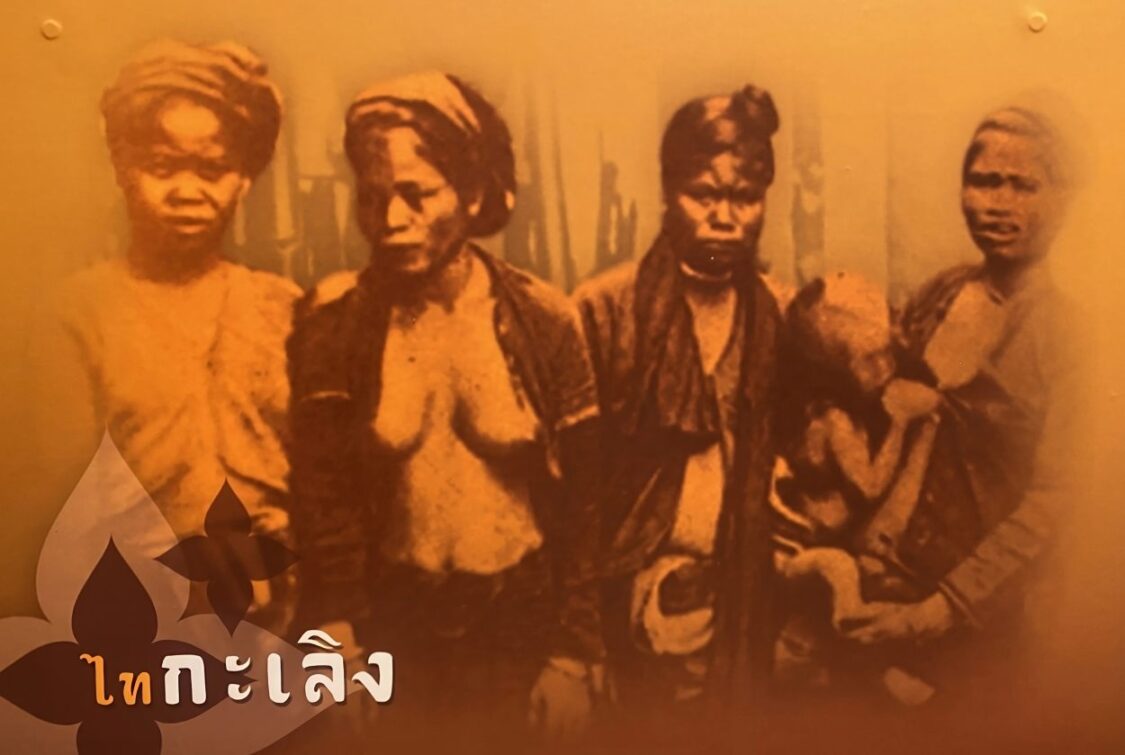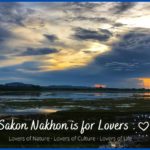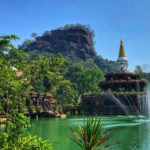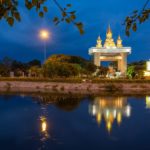Thai Kaloeng Tribe of the Mekong Basin & Phu Phan Mountains

Above Photo: Thai Kaloeng women from the early 1900s. Note that Siamese women commonly went topless (or semi-topless) until the mid 1800s, when the colonial powers started visiting. Then the practice began to fade, but continued in Northeast Thailand (Isaan) until the 1930s.
The Thai Kaloeng (ไทกะเลิง) — also spelled Tai Kaleung or Thai Kalerng — originally lived in the Mekong Basin area in Southern Vietnam, before migrating to Laos and then later to Nong Khai, Mukdahan, Nakhon Phanom, and the Phu Phan Mountain area of Sakon Nakhon — in particular, the villages of Ban Nai Yo, Ban Na Mon, Ban Phon Ngam, and Ban Bua. They arrived in two waves, during the reign of King Rama III (1824-1851) and King Rama V (1868-1910).
The Thai Kaloeng, like the Thai Yoi and other tribal people of Sakon Nakhon, are recognized for their indigo-dyed clothing, woven by hand. They also have distinct fashion items, such as short cotton sarongs, yellow and white long-sleeved t-shirts, turbans worn on the head, and unique jewelry, such as round hoop earrings and handmade bracelets.
Thai Kaloeng elders sometimes wear black, white, and red patterned sarongs; and cylinder-sleeved shirts dyed with indigo and decorated with red coins beside the buttons. Elder women at one time used to wear their hair high, but this tradition has gone out of style.
The traditional occupations of the Thai Kaloeng were farming and hand-woven clothing, including garments dyed with indigo, sacred bamboo, and special herbs — traditions that continue to this day. Their Buddhist beliefs are deeply entwined with their respect for elders and long-ago ancestors, whose ghosts are believed to bring abundance to harvests and happiness in life. Thus spirit houses among the Thai Kaloeng are common.
During special ghost raising ceremonies called “liang phee” (เลี้ยงผี), you’ll see Thai Kaloeng women dressed in traditional attire dancing to honor Chao Pu (เจ้าปู่), who is symbolic of their most revered ancestors — spirits who have the power to protect their village and bless their endeavors.
In the video below you’ll see a Thai Kaloeng Festival that was held recently in the Kut Bak District of the Phu Phan Mountains in Sakon Nakhon.
- Affirmations in Buddhism & Thailand - June 7, 2025
- Speak Thai Naturally Without the Gymnastics - April 20, 2025
- The Best Learn Thai Podcast and YouTube Channel - April 10, 2025




